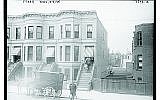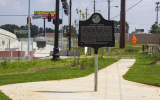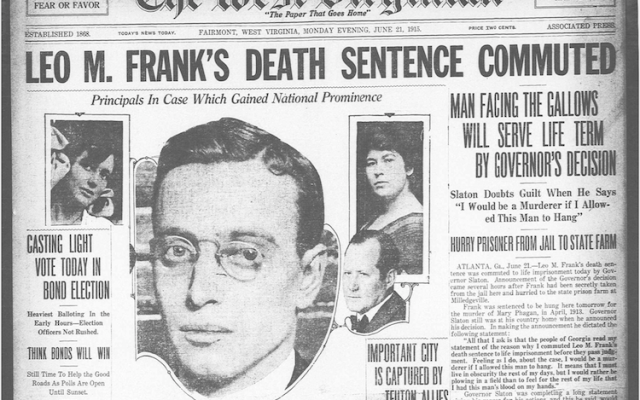Falsely Convicted, Wantonly Murdered
Without the diligence of a few key community members, Leo Frank would not have been pardoned. There's more to do, though.
Rabbi Steven Lebow is the spiritual leader of Temple Kol Emeth in Marietta.
There is no statute of limitations on doing the right thing. Which leads, perforce, to the case of Leo Frank.
Frank, the superintendent of the National Pencil Factory, was accused of murdering thirteen-year-old Mary Phagan in 1913.
On Confederate Memorial Day that spring Phagan has taken the trolley to midtown Atlanta to collect her paycheck. She was never seen alive again. Her lifeless body was found at the bottom of an elevator shaft in the factory. The last man to remember seeing her there was Leo Frank, a transplanted New Yorker, now living in the South.
At first the Atlanta police arrested a half dozen men whom they thought had committed the crime. Lacking any evidence, the police released all of the suspects they were holding. Without a suspect the Atlanta police turned their gaze upon Frank. As a Jew who was from Brooklyn he must have seemed a suspicious outsider.
Frank had an alibi and there was no forensic evidence to tie him to the crime. There were no witnesses to the murder until Jim Conley, the factory janitor, (who had been an early suspect) now claimed he had seen Leo Frank with the lifeless body of Mary Phagan.
At the Frank trial, the Fulton County Prosecutor produced a few female witnesses who claimed that Frank had once ogled them. The witnesses had been coached by the Atlanta police, and under cross examination, they eventually recanted.
The Leo Frank trial and its appeal dragged through the courts for two years. The case went as high as the U.S. Supreme Court, where three of the judges,
the minority, argued that Frank should be set free and all charges dropped.
After his appeals were exhausted, Frank was scheduled for execution in 1915. Behind the scenes the lawyer for Jim Conley came forward and declared it was his own client, and not Frank, who was guilty of the crime!
Frank’s capital murder conviction was upheld until Governor John Slaton commuted his sentence to life imprisonment- hoping to stall for more time for
Frank’s appeals.
As is well known, that time never came. Frank was lynched on Aug. 17, 1915.

Twenty years ago, I was approached by some native Mariettans to help identify the actual spot where Frank was lynched. Through research and interviews I was able to successfully identify, for the first time, the actual lynching spot of Leo Frank.
On that site I placed a small yahrzeit plaque for Frank. That historic site has now been eclipsed by a new overpass for I-75.
Due to the influence of Jerry Klinger, the president of the Jewish American Society for Historic Preservation, a new Frank memorial marker was placed across the street from where the lynching occurred.
Present at the service last week was Dale Schwartz, the attorney who (along with the late Charles Wittenstein) argued on behalf of the Anti-Defamation League for the “Provisional Pardon” granted to Frank in 1984 by the Georgia Board of Pardons and Paroles.
Without the leadership of Jerry Klinger, the lynch site would probably have been obscured to history. And without the courage of Dale Schwartz, there would never have been any kind of pardon give to Frank.
And yet, every time that Klinger and Schwartz gather with me near the lynch site, there is only one question which still haunts us.
Leo Frank was innocent. When will the State Of Georgia, its Governor or its legislators, acknowledge that one simple truth?

As I wrote on the original Leo Frank plaque that stood at the site for 20 years: “Leo Frank; Falsely accused, wrongly convicted, wantonly murdered.”
For the last 20 years I have stood at the site of Frank’s lynching, offering up a modest kaddish for a man caught up in the racism and anti-semitism of the time. I intend to be present at that site for another 20 years.
Who knows? Perhaps by then Leo Frank will be exonerated and declared innocent of all charges.
There is, after all, no statute of limitations on doing the right thing.
Rabbi Steven Lebow is the senior rabbi of Temple Kol Emeth in Marietta.




comments